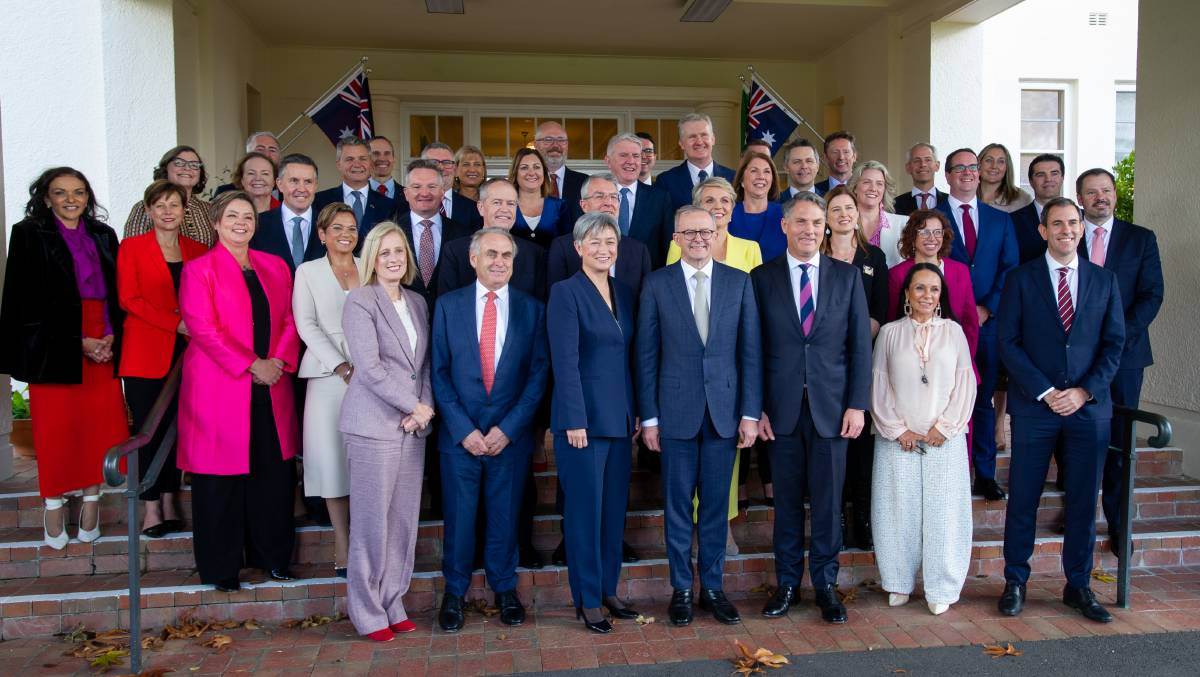Australia has elected its most diverse parliament ever. Women now form 45 per cent of our Federal Parliament, up from 38 per cent and 4.8 per cent will be First Nations MPs, up from 3.1 per cent. The Prime Minister has a non-Anglo surname, we have an Asian Australian as our foreign minister and the first Muslim cabinet minister. These facts should be celebrated; however, we should also acknowledge there is still a lot more to do when it comes to diverse representation in Australia politics.
Despite the election result, Australia still lags behind similar countries when it comes to culturally and linguistically diverse representation in politics. While we have seen a notable increase from 2019, almost all the heavy lifting has been done by the Labor Party and by female candidates, much of it from Western Australia.
With 21 per cent of the population having an overseas non-European cultural background, Australia has comparable levels of cultural and linguistic diversity to New Zealand and Canada, but they beat us hands down when it comes to representation in elected parliaments of MPs.
New longitudinal analysis I have conducted for an upcoming Australian National University workshop on gender and cultural diversity in politics in July found that other English-speaking Westminster democracies have made substantial improvements over the past two decades, creating a widening gap as Australia has failed to keep up.
Representation in New Zealand and Canada dramatically increased over this time period. Between 2002 and 2022, visible minority representation increased from 5.5 per cent to 15.7 per cent. In New Zealand, it increased from 5 per cent to 16.7 per cent over the same period.
What is most shocking is how Australia compares to the United Kingdom. In 2002, Australia and the United Kingdom were similar when it came to culturally and linguistically diverse representation in politics. In Australia, 2.2 per cent of MPs had overseas non-European cultural backgrounds, while 1.8 per cent of MPs in the House of Commons were Black and minority ethnic.
Two decades on, one in 10 British MPs are now Black and minority ethnic and over a quarter of the cabinet of a Conservative Party government. In stark contrast, despite a sizeable increase in 2022, only 6.6 per cent of Australians MPs have overseas non-European backgrounds and there will be only three ministers with such a background in an incoming Labor government.
Change did not happen overnight in the United Kingdom. It was the product of long agitation within political parties and also a system-wide recognition of the lack of cultural diversity in politics. In 2008, the British Parliament agreed to hold a Speakers Conference on parliamentary representation, parties adopting recommendations such as publicly reporting on the diversity of their candidates. The impact across the party system has been significant.
A more culturally diverse parliament requires a change in thinking across all our political parties. We must not see repeats of what occurred in Fowler and Parramatta or the last round of Victorian Labor state preselections that failed to improve diversity. It also requires the Liberal Party to take it seriously as an issue and acknowledge that the culturally and linguistically diverse candidates it selects are almost all in unwinnable seats. It goes beyond the major parties, with criticisms that there was a lack of diversity among community independents supported by Climate 200.
If we truly want to be the most successful multicultural country and deliver the best outcomes for all Australians, we need a parliament that truly reflects our nation. But unless we prioritise improving diversity over this next term, Australia will have a parliament that is even more out of step with the increasingly multicultural society we live in. The average tenure of parliamentarians is almost a decade, meaning that every single preselection matters if we want to quickly catch up to comparable democracies.
This next term of Parliament provides an opportunity to take culturally and linguistically diverse representation seriously by putting it on the agenda. The Jenkins review recognised the lack of diversity in politics, recommending the publication of diversity data about MPs and a multi-party 10-year strategy to improve diversity in politics, including (but not limited to) specific actions to improve culturally and linguistically diverse representation. All parties should commit to these specific actions to further improve diversity.
The lack of cultural and linguistic diversity in politics will not be solved overnight but these practical steps will make a difference if there is the will from political parties. They just need to show it.

